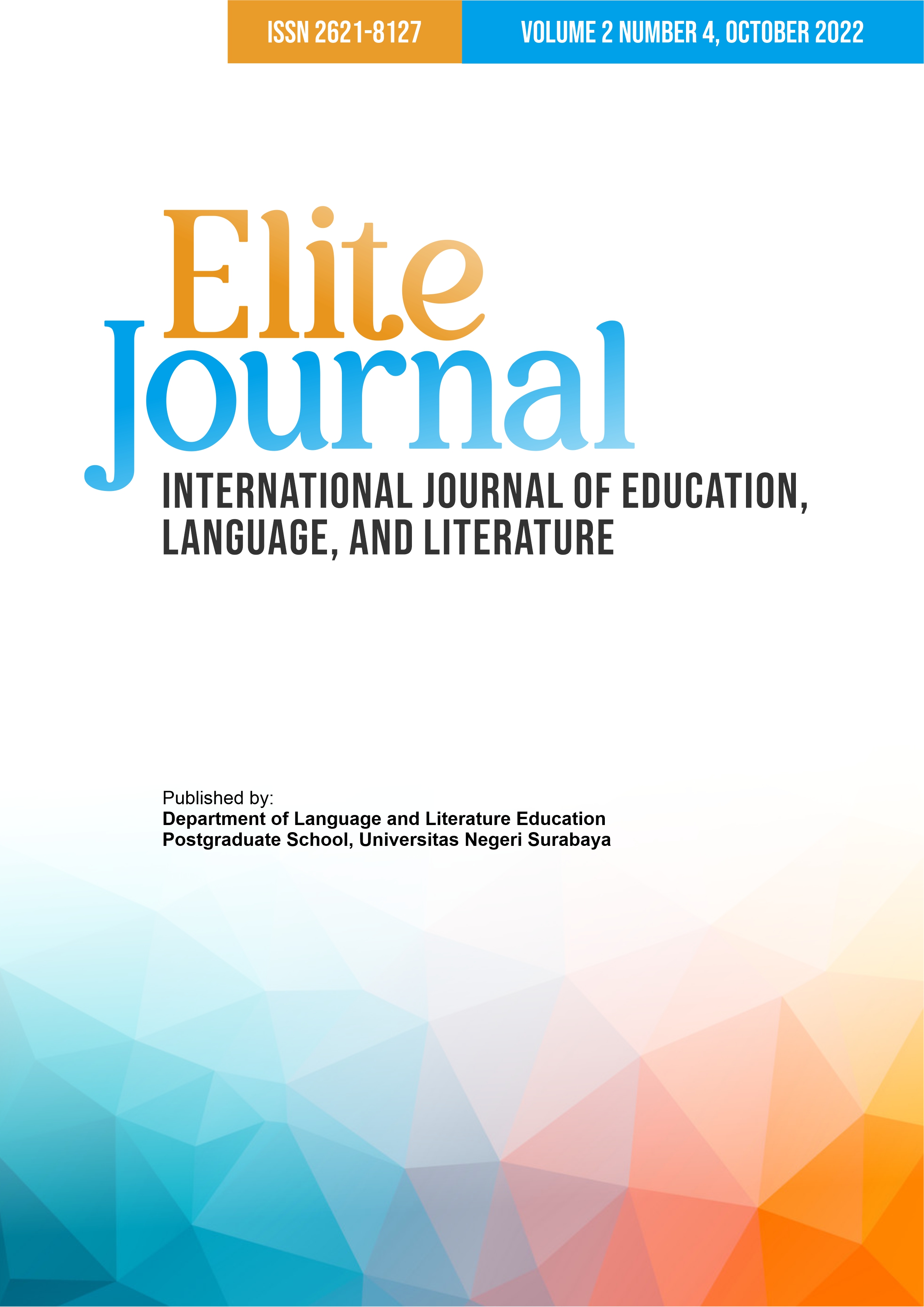CULTIVATING CRITICAL THINKING SKILLS IN EFL STUDENT TEACHERS THROUGH ONLINE LEARNING
DOI:
https://doi.org/10.26740/elitejournal.v2n4.p219-227Keywords:
Critical Thinking, EFL Student Teacher, Scaffolding, Online LearningAbstract
Since the current paradigm of competency in higher education requires the integration of critical thinking skills and information literacy from diverse perspectives and cultures into the learning process, student teachers need to be able to communicate effectively through problem-solving and critical analysis from some points of view. This current study examines how EFL student teachers can cultivate students’ critical thinking skills and disposition during online learning mode. The interaction process serves as the primary focus of this ethnographic case study. An observation sheet and an interview technique were utilized in conjunction with the focus-group discussion as the instruments. The participants were 23 student teachers who were currently enrolled in the Educational Technology in ELT course. This course purposes to offer students with important knowledge and practical aspects of teaching aids or media in English as a foreign language teaching. From the data analysis, the findings showed that when critical thinking skills are integrated into instruction, student teachers have the opportunity to enhance their critical thinking and disposition. In order to eliminate the possibility of bias and ensure a reliable assessment of critical thinking abilities, it is recommended that future studies use samples that are both larger and more broadly representative.
References
Butler, H. A., Pentoney, C., & Bong, M. P. (2017). Predicting real-world outcomes: Critical thinking ability is a better predictor of life decisions than intelligence. Thinking Skills and Creativity, 25, 38-46.
Facione, P. A. (1990). Critical Thinking: A Statement of Expert Consensus for Purposes of Educational Assessment and Instruction. Research Findings and Recommendations.
Lunney, M., Frederickson, K., Spark, A., & McDuffie, G. (2008). Facilitating critical thinking through online courses. Journal of Asynchronous Learning Networks, 12, 85-97.
Mishra, P., & Koehler, M. J. (2008, March). Introducing technological pedagogical content knowledge. In the annual meeting of the American Educational Research Association (Vol. 1, p. 16).
Mumford, S., & Dikilita?, K. (2020). Pre-service language teachers reflection development through online interaction in a hybrid learning course. Computers and Education, 144, 103706. https://doi.org/10.1016/j.compedu.2019.103706
Ricci, F. A. (2013). Encouraging critical thinking in distance learning: Ensuring challenging intellectual programs. Distance Learning, 10(1), 1.
Undang-undang Republik Indonesia no 20 tahun 2003 tentang Sistem Pendidikan Nasional, (2003).
Downloads
Published
How to Cite
Issue
Section
License
Copyright (c) 2022 Arik Susanti, Respati Retno Utami, Ika Anggun Camelia, Anis Trisusana

This work is licensed under a Creative Commons Attribution 4.0 International License.
 Abstract views: 462
,
Abstract views: 462
, PDF Downloads: 270
PDF Downloads: 270





